
Elections are necessary in democracies, because the core strength of democracy lies in participatory politics. Today, Jammu and Kashmir is preparing to hold its first assembly elections in a decade, in a strategic-sociopolitical environment that underwent a radical transformation after the abrogation of Article 370 on August 5, 2019.
The big question now: how can political parties help make the elections free and fair, ensuring that voters overcome challenges rooted in historical reasons that had pitted a sizeable section of the population against the Indian state?
The polls will define what a vote for democracy means in Jammu and Kashmir today. In the past five years, there has been a sharp swing in the rhetoric of political parties in Jammu and Kashmir— from a vocal unwillingness to fight the polls unless Article 370 was restored, to demands for statehood and, finally, expressing willingness to participate in the polls. Some politicians even concede that boycotting the district development council polls in 2020 was a mistake.
This demonstrates two points. First, the Indian state matters. Second, the political class—including the BJP, the Congress, the National Conference and the Peoples’ Democratic Party—understands that for the common man bijli, sadak, paani (electricity, road, water) matter. Hospitals, schools and colleges matter. Roads and infrastructure matter. Employment matters.
Politicians, as most Kashmiris would agree, have not historically done well when it comes to meeting their expectations. Hence, the apprehension among voters about whether the upcoming polls would bring much-needed relief in their day-to-day lives or just be a vehicle for vote bank politics that would skirt around issues of development and governance.
This story is from the September 01, 2024 edition of THE WEEK India.
Start your 7-day Magzter GOLD free trial to access thousands of curated premium stories, and 9,000+ magazines and newspapers.
Already a subscriber ? Sign In
This story is from the September 01, 2024 edition of THE WEEK India.
Start your 7-day Magzter GOLD free trial to access thousands of curated premium stories, and 9,000+ magazines and newspapers.
Already a subscriber? Sign In

Is bridal wear on the wane?
So many guests walked out of Sabyasachi's grand 25th year celebration in Mumbai last weekend, a little confused, even outraged. How can India's most famous bridal wear designer not showcase a single bridal outfit? Guests were underwhelmed, or disappointed, unable to wrap their coiffed heads around the fact that India is changing, and fashion is now more than a lehenga.

The wedding goes slim
So Jeet Adani is to have a 'traditional and simple' wedding sans celebrities or media glare. His father told the press that the auspicious date was finalised during a visit by the Adani family to the Mahakumbh in Prayagraj, where the muhurat was decided in the presence of vedic scholars.

INTO THE MOCHA-VERSE
Did Pantone get it right with its colour of the year 2025?

The art is in the right place
Joining a growing league of India's privately-owned museums is Sarmaya, a modern space that chronicles historic journeys
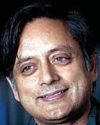
New words for old feelings
At a recent literary festival in Pune, its curator, the author Manjiri Prabhu, challenged me to prove my love of words by coining a few new ones. Inspired by the English language's habit of borrowing freely from the world's languages, I essayed these:
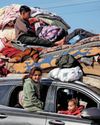
OIL AND MORE
India cannot be a spectator to what is unravelling in West Asia, say experts

We hope India will support two-state solution and help rebuild Gaza
War-torn Gaza, once home to Yasser Arafat, dreamt of self governance for the Palestinian territories. This time, its people are looking towards the Palestinian Authority to play a bigger role in helping implement the phased Israel-Hamas ceasefire, rebuilding territory and uniting Palestinians.
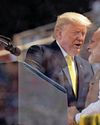
BACK TO BROMANCE
India's strategy will be to convince President Trump that there is no daylight between him and Prime Minister Modi in advancing their shared goals
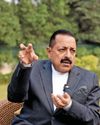
Next industrial revolution will be driven by biotechnology and bio-economy
IN AUGUST 2024, the Union cabinet approved the BioE3 policy—Biotechnology for Economy, Environment and Employment, a framework policy to leverage biotechnology for India's economic growth, environmental sustainability and employment generation. It prioritises bio-manufacturing initiatives in various sectors like biopolymers, smart proteins, bio-therapeutics, climate-resilient agriculture, and marine and space research.
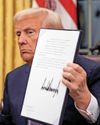
AMERICAN NIGHTMARE
With his strident anti-immigrant rhetoric and actions, Donald Trump is killing the American dream for both documented and undocumented workers. Indians, especially the H-1B visa holders and aspirants, could suffer the most under the new administration's policies